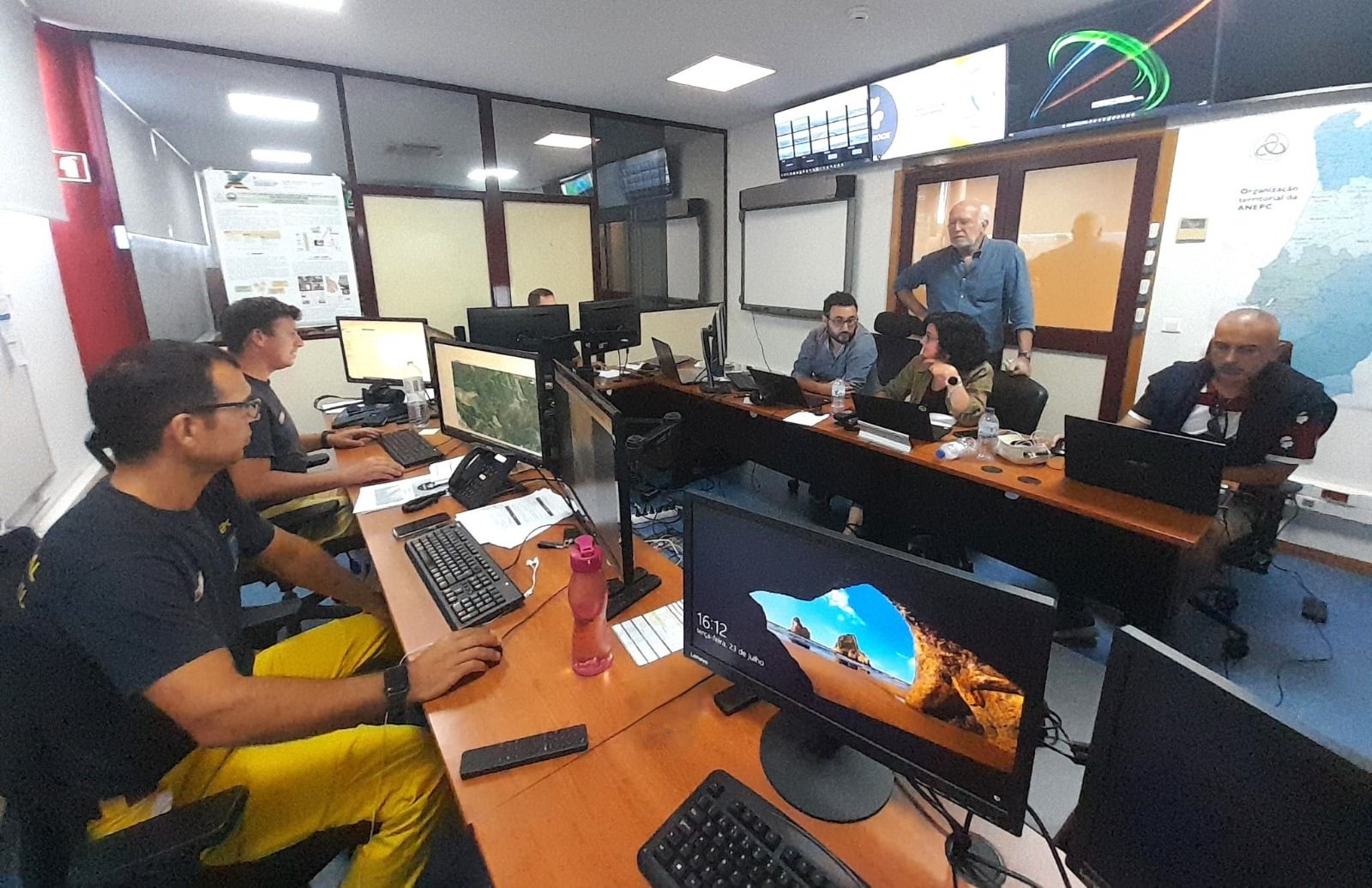📍 Information
Host Institutions: University of Lisbon & National Authority for Emergency and Civil Protection (ANEPC)
Dates: 19–28 July 2024
Home Institution: National Research Council of Italy (CNR)
🧭 Overview
From July 19 to July 28, 2024, Valentina Bacciu of the National Research Council of Italy conducted a Short-Term Scientific Mission (STSM) hosted by the University of Lisbon and ANEPC, within the framework of the NERO COST Action. The mission aimed to deepen her understanding of operational decision-making in real-time wildfire suppression and to explore how fire analysis tools and workflows can be transferred across institutional and national contexts.
📋 Key Activities & Insights
- Integrated into the NAD-AIR wildfire decision support cell.
- Studied real-time decision workflows for suppression operations.
- Interpreted fire danger indices and weather data from IPMA.
- Conducted case study analysis of the Alcabideche-Cascais wildfire.
- Reconstructed fire progression and linked it to suppression strategy.
- Identified best practices and transferable operational components.
- Built a comprehensive report connecting research and real-time practice.
💭 Relevance & Reflections
This STSM offered a unique opportunity to bridge Valentina’s research expertise with operational realities. It strengthened collaboration between CNR, ANEPC, and the University of Lisbon, and laid the groundwork for applying Portugal-tested methodologies to the Italian context. The experience will support the development of a cross-border evidence base on extreme fire behavior and inform future analysis in the NERO fire database. Valentina will present her insights in a dedicated NERO webinar in October 2024.
📄 Read the Full Report
📥 Download Valentina’s STSM report here.





